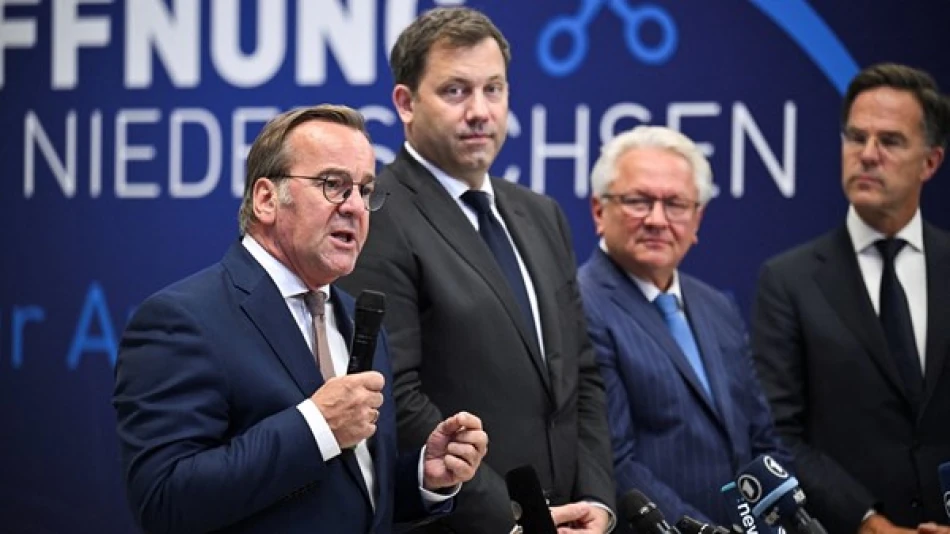
Germany Responds to Von der Leyen's Remarks on Sending Troops to Ukraine
Germany Slams EU Chief's Ukraine Troop Deployment Plans as Premature Power Grab
A sharp rift has emerged within European leadership over post-war Ukraine security arrangements, as German Defense Minister Boris Pistorius publicly rejected European Commission President Ursula von der Leyen's announcement of "very detailed plans" to deploy multinational European forces in Ukraine. The dispute highlights fundamental questions about who holds authority over European military decisions and exposes growing tensions over how quickly the continent should move toward direct military involvement.
The Clash Over Authority and Timing
Pistorius delivered a scathing rebuke during a visit to a defense facility in Cologne on Monday, calling von der Leyen's statements to the Financial Times "premature" and arguing she lacks the authority to discuss such matters. His criticism cuts to the heart of European institutional power dynamics, as he emphasized that "the European Union has no mandate or competence whatsoever when it comes to troop deployment."
The German minister's pushback reflects a broader concern among EU member states about the Commission overstepping its bounds on defense matters, which traditionally remain under national sovereignty. This institutional friction could significantly complicate Europe's ability to present a unified front in future Ukraine negotiations.
Von der Leyen's Ambitious Vision
According to her Financial Times interview, von der Leyen outlined plans for deploying tens of thousands of European-led troops with American support, including command and control systems, surveillance, and reconnaissance assets. The deployment would serve as part of post-conflict security guarantees for Ukraine, representing one of the most ambitious European military commitments since World War II.
The scale of the proposed deployment suggests Europe is preparing for a long-term military presence that would fundamentally reshape the continent's security architecture. Such a commitment would require unprecedented coordination between EU institutions, NATO, and individual member states.
Germany's Cautious Approach
Pistorius emphasized that military deployment discussions should only occur "after sitting at the negotiating table with many parties who have an opinion in this regard." This reflects Germany's historically cautious approach to military interventions and its preference for multilateral consensus-building.
Germany's resistance also stems from practical concerns about burden-sharing and the political risks of committing to open-ended military deployments. As Europe's largest economy, Germany would likely bear significant financial and logistical responsibility for any major troop deployment.
Implications for European Defense Integration
This public disagreement reveals the challenges facing European strategic autonomy initiatives. While the EU has pushed for greater defense integration through programs like the European Defence Fund and Permanent Structured Cooperation, actual military deployment decisions remain firmly in national hands.
The dispute could strengthen arguments from member states that prefer NATO-centered approaches over EU-led military initiatives. It also highlights the ongoing tension between the Commission's federalist ambitions and member states' sovereignty concerns, particularly on matters of war and peace.
Market and Geopolitical Ramifications
Defense contractors and European military stocks could see increased volatility as markets assess the likelihood of major European military commitments. The institutional uncertainty also raises questions about Europe's ability to provide credible security guarantees to Ukraine, potentially affecting post-war reconstruction investments and regional stability calculations.
For international partners, particularly the United States, the public disagreement signals that European military commitments may be less reliable than initially hoped, potentially requiring continued American leadership in European security matters.
Most Viewed News

 Layla Al Mansoori
Layla Al Mansoori






